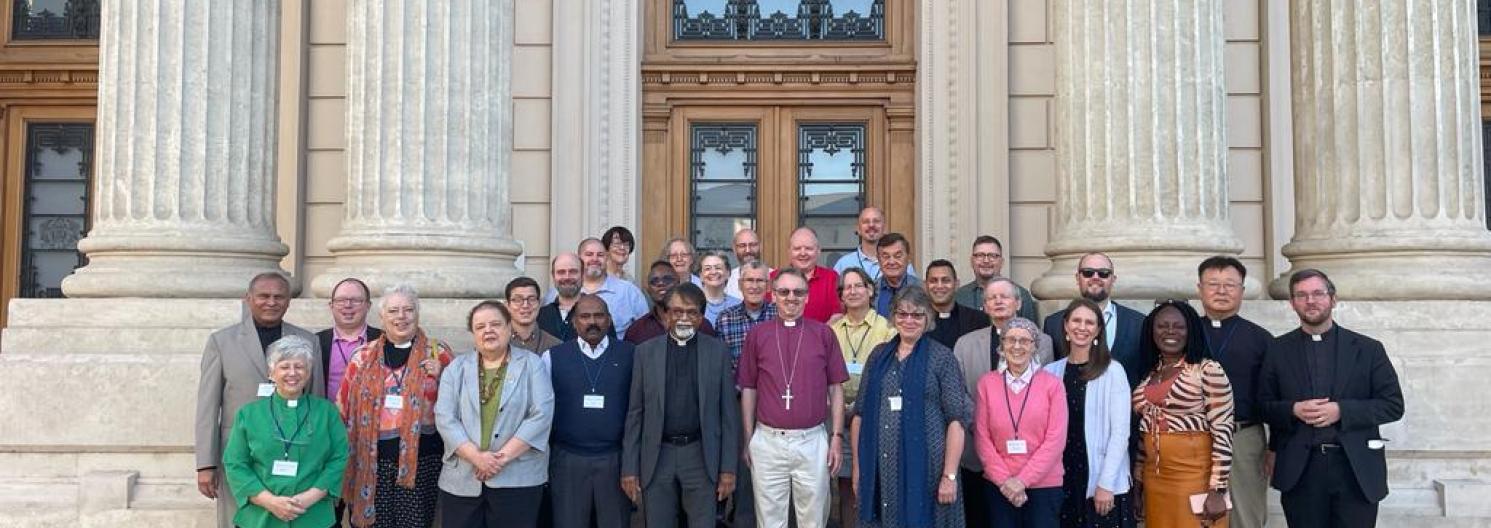Bishop Robert's monthly letter | Edition 2

Living in Love and Faith
Earlier this month the General Synod of the Church of England met to discuss the Prayers of Love and Faith. I wanted to take this chance to share with you where the process is now, to explain what happens next and to offer support to everyone across our diocese.
There is much to do, and we can do it only by grace. All brothers and sisters in Christ, including LGBTQi people, are treasured members of our church; and each of us can “do all that makes for peace and builds up our common life.” We know that decisions by Bishops and Synods will lead to more reaction and sometimes to difficulty. Yet we are aware, perhaps especially in this diverse diocese, of the importance of building peace in a world that is already dangerously divided.
Where are we now?
The House of Bishops will be publishing commended Prayers of Love and Faith (PLF) for use in private pastoral ministry and in public worship within existing services. The decision as to whether or not (and, if so, how) the prayers may be used in a Chaplaincy rests with the Chaplain, who is advised to consult with Councils and colleagues. Answers to many of the practical questions appear as Annex E of GS2328: and we will share more information with you as it is available.
“Stand-alone” services for same-sex couples, based on the PLF, will be authorised under Canon B2, which means a longer process of consultation, and an eventual two-thirds majority decision in each of Synod’s houses (Bishops, Clergy, Laity). The aim will be 2025. Meanwhile, “stand-alone” services might be taken forward on an experimental basis in some places, but the “how” of this remains to be decided, probably by the House of Bishops in mid-December.
Pastoral Guidance addressing the Church’s expectations of the lives of clergy and licenced lay ministers is in progress, but not yet published. We will ensure you are kept updated when this happens.
The theological rationale for the decisions so far is “pastoral provision in a time of uncertainty”. This is not uncertainty about the doctrine of marriage, which is currently unchanged. Rather, there are what we might call “clashing certainties” as to whether doctrine and teaching should change or whether it should remain the same. There is no decisive majority in Synod either way.
Whatever you feel about the direction set in the recent Synod decisions, we as your bishops are committed to you, to each one of you, respecting conscience and honouring you, even as we recognise deep disagreements. Chaplaincies are very welcome to call upon the help of Area Deans and Archdeacons as they engage with these issues.
Christ invites us to be his friends, even where we struggle to agree with others who have received the same invitation. Our diversity, in chaplaincies and diocese, remains a wonderful sign of hope. Thank you for sharing with us in the gospel of Jesus Christ. Please know my prayers and good wishes.